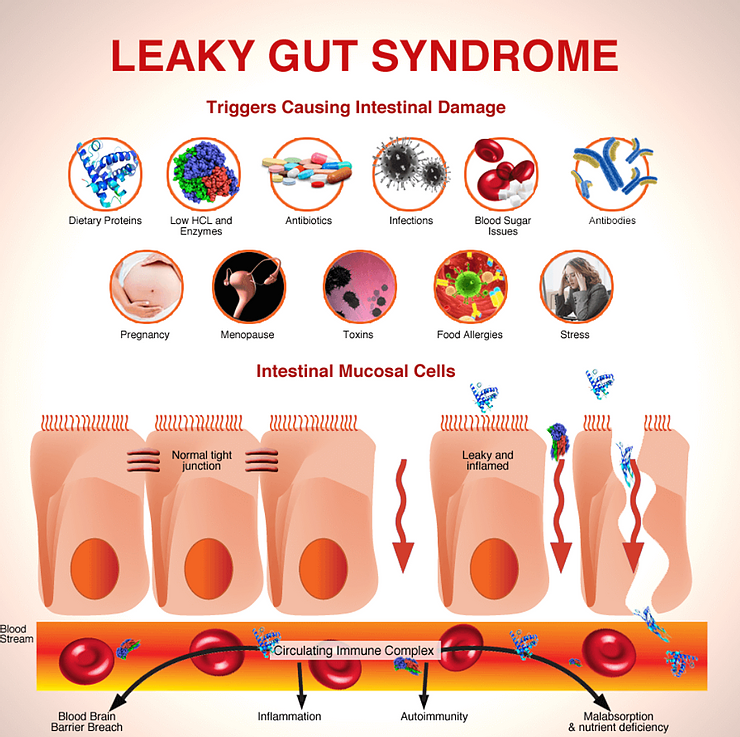It’s been estimated that 3 in 4 people have some form of food sensitivity, whether mild or severe.

These sensitivities are uniquely individual. Everything from nutrients and chemicals, specific minerals, or specific food additives can lead to a host of symptoms.
Note that eating a diet that is low in processed foods, can help eliminate many of these common food offenders.
Another common type of food sensitivity is Leaky Gut Syndrome (LGS). LGS is poorly recognised, and rarely tested for, but fairly common.
With LGS, the intestinal lining becomes extremely permeable, meaning that it may allow large molecules and toxins to enter the body undigested. This is possible when the intestinal lining becomes inflamed or damaged, disrupting its normal functions. As a result, “spaces” develop between the cell walls and macromolecules (including histamine from food), antigens, and toxins sneak in. As these molecules, which should not be allowed to sneak in, invade the GI wall more frequently, additional damage occurs, exacerbating the problem.
Beyond damaging the intestinal mucosa, these molecules (which are much larger than the body prefers to absorb) can be treated as foreign invaders that trigger the body’s immune defences. This sets off a cascade of antibody production. The body sets up a defence against otherwise healthy food, and potentially against its own cells, although this is speculative. T
To make matters worse, as the damage to the intestinal mucosa gets worse, the carrier proteins also become damaged, causing nutrient deficiency. There are many symptoms of LGS including GI distress (bloating, flatulence, and abdominal discomfort), immune reactions (including hives and mucus build up), nutrient deficiency, and more. The symptoms of LGS are similar to those of food sensitivities.